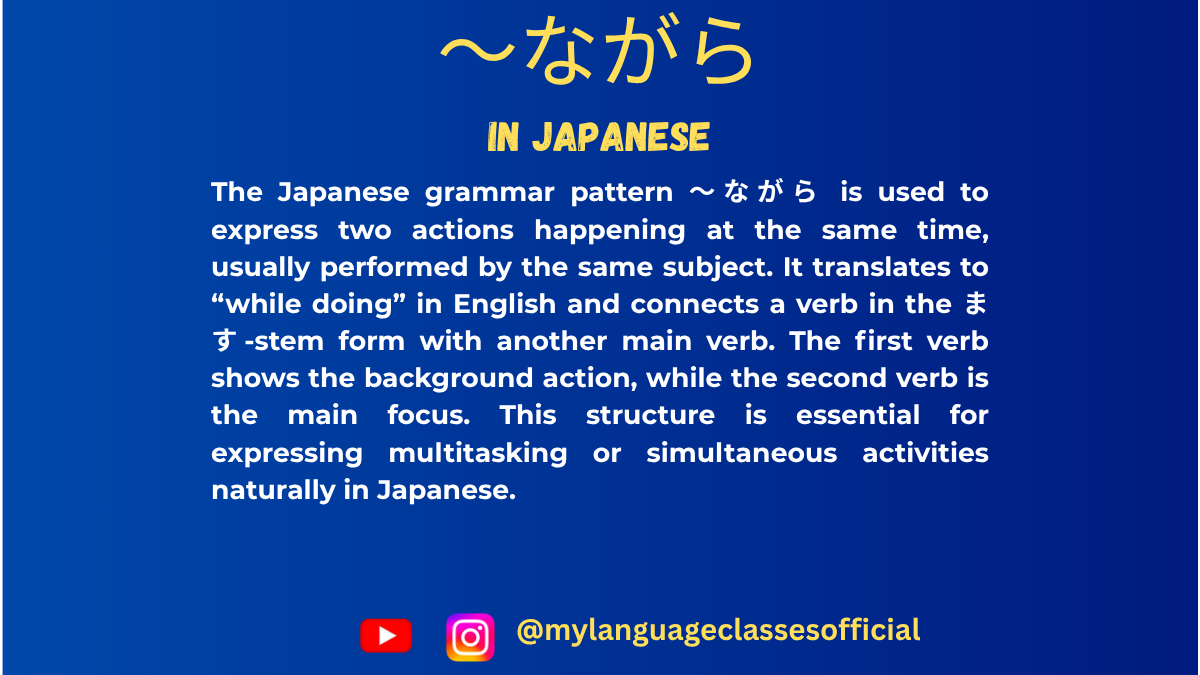Your cart is currently empty!
Tag: practice sentences with nagara form japanese

Using 〜ながら Form in Japanese
〜ながら Form in Japanese
The 〜ながら (nagara) form is an essential Japanese grammar structure used to describe two actions happening simultaneously. It is widely used in both casual and formal conversations to indicate multitasking or actions occurring at the same … Read more

